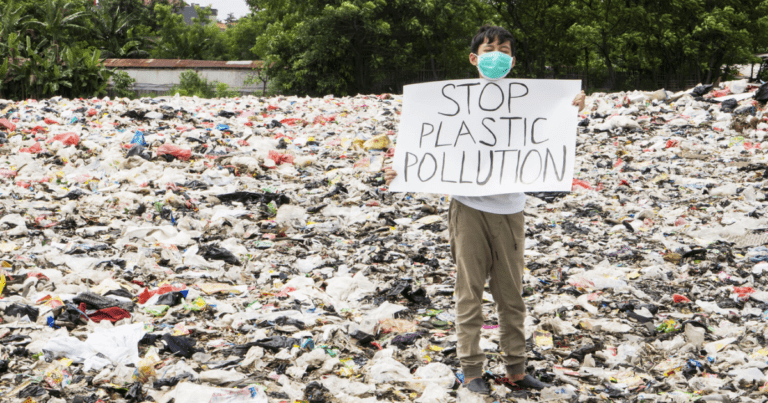A national survey presented at a press conference as part of the “Switch to Circular Economy Value Chains” project has revealed growing public concern about plastic pollution, which Morocco aims to reduce by 70% by 2030.
The project, funded by the European Union, aims to promote sustainable value chains by encouraging the adoption of circular economy models.
Approximately 94% of Moroccan citizens consider waste management a critical priority, highlighting an urgent environmental and economic issue.
Unmanaged plastic waste continues to pollute soil, rivers and coastlines, threatening biodiversity and key economic sectors such as fisheries and tourism.
In response, Morocco, known for its rich and diverse ecosystems, has committed to reducing plastic pollution as part of its National Strategy for the Reduction and Recovery of Waste (SNRVD).
This ambitious transition depends on better integration of informal sector workers, who currently account for 90% of plastic recycling activities.
The government plans to formalize 50% of these roles by 2030, offering better working conditions while strengthening the recycling value chain.
Optimising plastic waste management could also reduce costs associated with landfill use and the cleanup of natural spaces, while attracting foreign investment.
By aligning with international standards, Morocco aims to increase its competitiveness and develop a modern recycling infrastructure.
The kingdom aims to become a regional leader in plastic waste management, supported by initiatives such as the Bottle-to-Bottle pilot project, which demonstrates how environmental challenges can be transformed into economic and sustainable development opportunities.
Collective mobilisation will be critical to achieving these goals.
The government, businesses, civil society, and citizens are all called upon to act – whether by sorting waste, reducing the use of plastic bags, or adopting more sustainable practices.
Beyond an environmental imperative, this fight represents a strategic opportunity to position Morocco as an African leader in environmental transition, while ensuring inclusive and sustainable economic growth.
SL/sf/te/lb/as/APA


